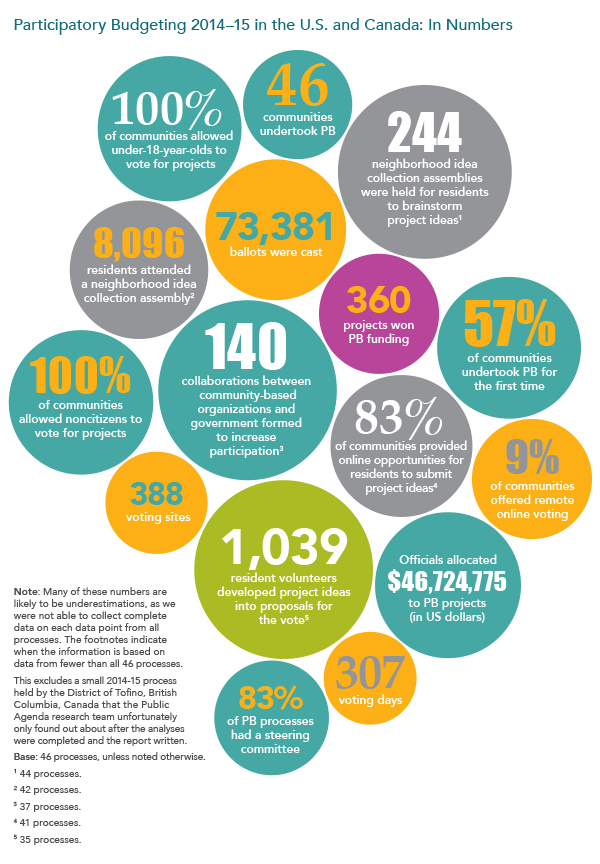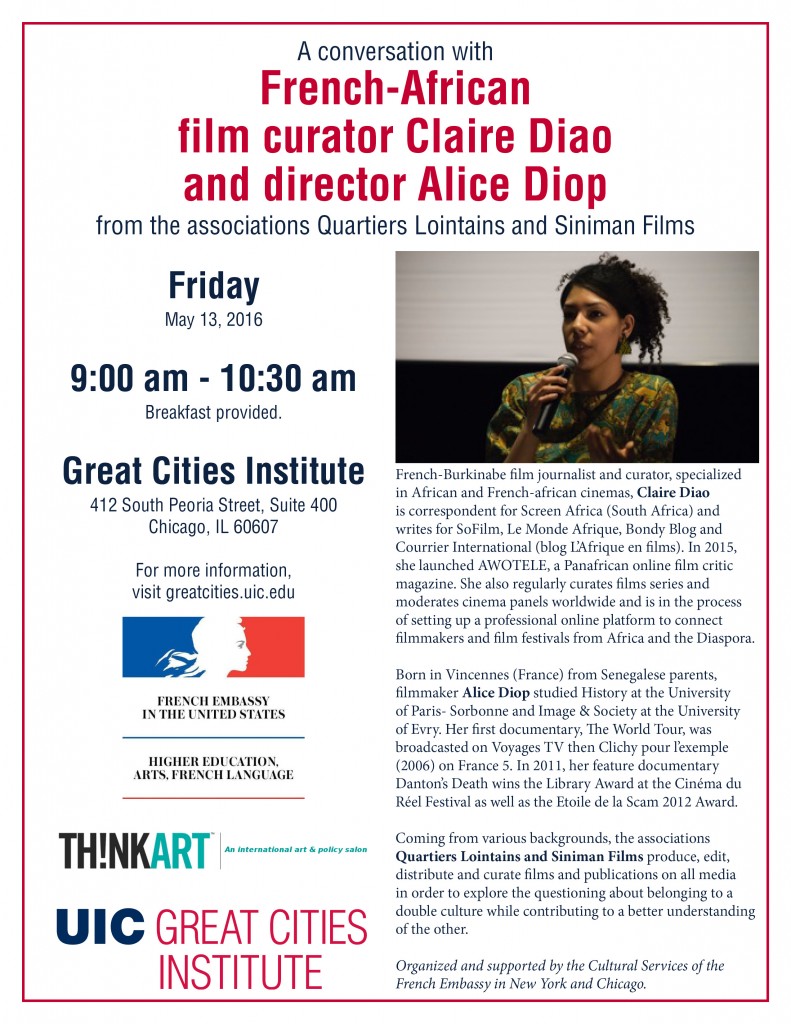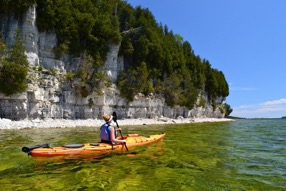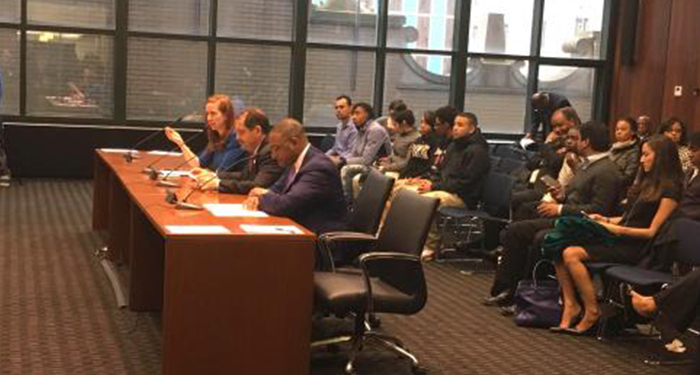
Cook County President Toni Preckwinkle presides over the County Board meeting on Wednesday Jan., 13, 2016. The County Board approved a measure that incentivizes local companies to hire area teens. (Abel Uribe / Chicago Tribune)
A recent UIC Great Cities Institute report on youth joblessness in Cook County is cited in a Chicago Tribune article about a new ordinance that give companies seeking county contracts incentives to hire teens.
The employment rate among 16- to 19-year-olds in Cook County was 20.4 percent in 2014, down from 27.5 percent in 2005, and nearly 10 percentage points lower than the national average, according to a March report prepared for the county by the Great Cities Institute at the University of Illinois at Chicago. The recession took a particularly hard toll on youth, who had to compete for entry-level positions with older and more experienced workers who lost their jobs, and they have seen little recovery.







